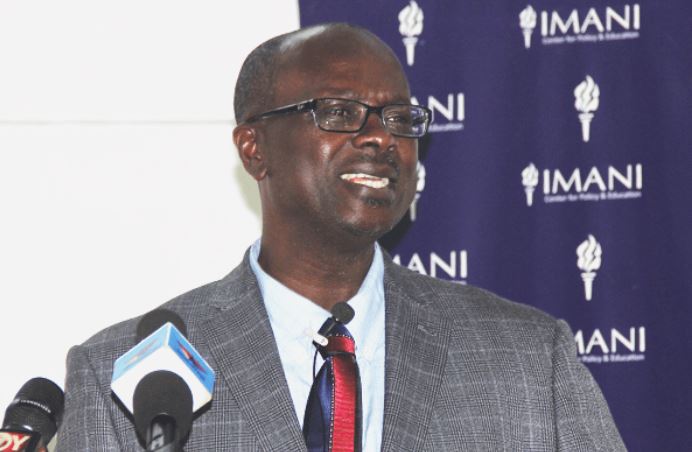
Private legal practitioner, Professor Stephen Asare, popularly called Kwaku Azar, has noted that the resignation from office of persons accused of misconducting themselves should be a normal practice that should not require backlash and force to happen.
Backing such an assertion, Professor Azar pointed to the recent resignation of the Managing Director (MD) of the Tema Oil Refinery (TOR), Asante Berko, as an action that ought to happen without external pressure.
He said such decisions must be down to common sense, a situation he observed, was not established within Ghana’s governance structure.
The TOR MD resigned from office after the Securities and Exchange Commission in the United States sued him for alleged involvement in the payment of bribes to Government of Ghana officials and some parliamentarians.
Mr Berko has since denied all allegations.
ALSO:
Cristiano Ronaldo earns almost $1million for every Instagram post to top sports rich list
Meet Reggie Rockstone’s handsome son who is into magic (photo, video)
Bisa Kdei ‘challenges’ Shatta Wale, others, flaunts mansion with pool (Watch)
In his post on Facebook, the legal practitioner opined: “Some things are common sense and do not require saying. For instance, it is common sense that the TOR MD should step aside for the appropriate authorities to look into claims that he facilitated bribery payments to government officials, civil servants, Members of Parliament, and [Ministry of Power] girls for a fee of $2M.
“Likewise, the authorities should be looking at the totality of the circumstances leading to the approval and ratification of the AKSA contract with a view to seeking its termination and prosecuting its actors if indeed laws were broken.
“While the above things do not require saying, they must be said because this is Ghana.
“It is disturbing and strange for other jurisdictions to go after the supply-side of bribery transactions related to contracts here while we always claim that there is no demand-side on our end! After all, like bookkeeping, bribery involves double entry. If there is a giver then there must be a taker,” he concluded.
The bribery allegedly took place between 2015 and 2016, at the peak of Ghana’s energy crisis during the administration of John Mahama, now flagbearer of the opposition National Democratic Congress.
According to the SEC, “Berko helped the Ghana-based intermediary pay more than $200,000 in bribes to various other government officials, and personally paid more than $60,000 to members of the Ghanaian parliament and other government officials, the SEC statement said, adding that “Berko took deliberate measures to prevent his employer from detecting the bribery scheme.”
The President accepted his resignation letter, a day after the scandal broke in Ghana.

